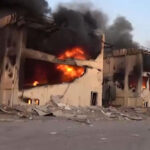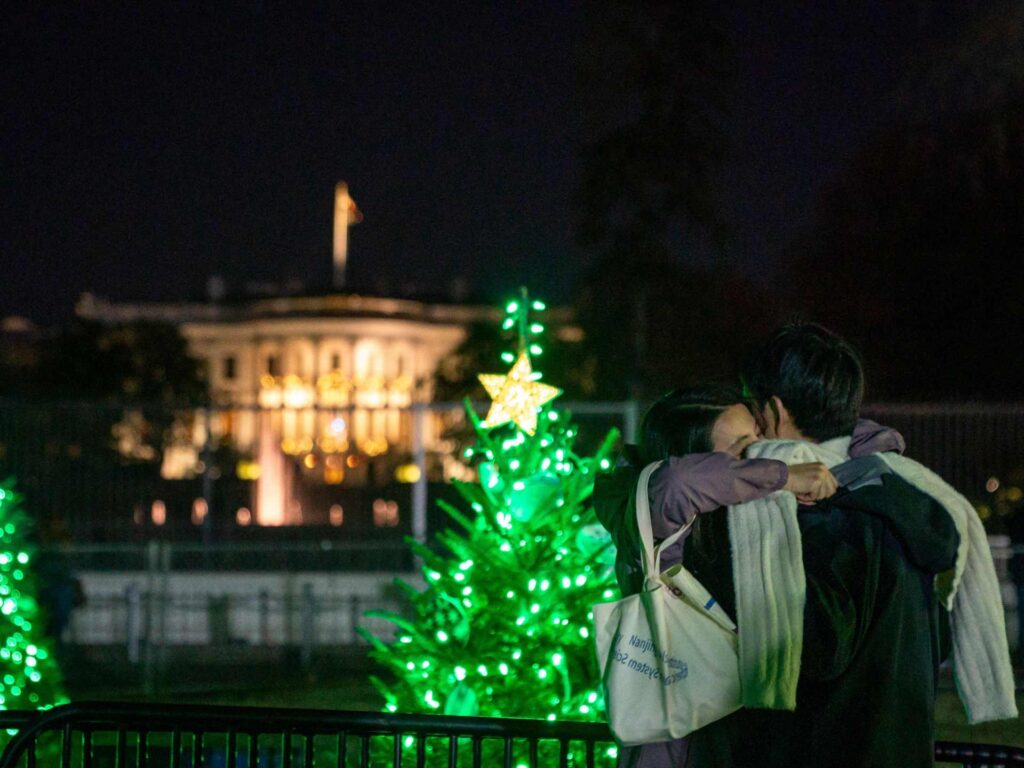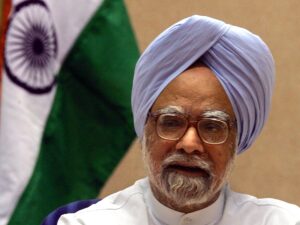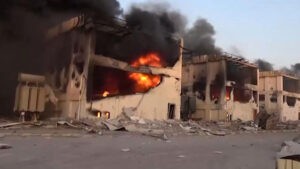
As a child growing up in the 1980s in Washington, DC, Christmas was a time when the usual monotony of my Catholic school existence gave way to an indescribable magic. It was not so much the presents as the sense that reality had been temporarily suspended and replaced by something far more invigorating – which I suppose is part of the reason I insisted on believing in Santa Claus until I was 10 years old.
Of course, mine was a relatively privileged childhood in the United States capital, an imperial headquarters that continues to this day to embody the racism and socioeconomic inequality that governs life in the so-called “land of the free.” While I knew vaguely of such domestic issues growing up, I knew even less of my country’s contributions to global suffering; in my birth year of 1982, for example, Washington had greenlit the Israeli invasion of Lebanon that killed tens of thousands of people.
Closer to home, the decade of the 1980s was characterised by US backing for mass right-wing slaughter in Central America, all in the noble pursuit of making the world safe for capitalism. That the tedium of Catholic school was my greatest earthly complaint meant that I was doing much better than a whole lot of folks – something that became even clearer when I abandoned the US in 2003, at the age of 21, in favour of an itinerant lifestyle that brought me into contact with the fallout of US misdeeds from Colombia to Vietnam.
Advertisement
I am now 42, and I did not have high hopes for Christmas when in mid-December I flew from Mexico to DC, where my parents had returned to live – following their own lengthy stretch abroad – shortly before my father’s death last year. This year, it was not just my dad’s absence that seemed to preemptively put a damper on festivities. The potential for indescribable magic would seem to have been fairly soundly obliterated by the dismal terrestrial state of affairs and the US-backed Israeli genocide that continues to rage in the Gaza Strip, where almost the entire population has been forcibly displaced.
Meanwhile, America’s conversion of Christmas into a giant traffic jam of Amazon delivery trucks merely drives home the all-consuming presence of apocalyptic capitalism and the reduction of humanity to an infinite soul-sucking series of economic transactions.
And yet, ironically, my first inkling of holiday cheer here in DC was triggered by just such a transaction-based interaction, when a Sudanese driver working for the ride-share company my mother uses gave me a hug.
Hailing from the Sudanese capital of Khartoum, the man – we’ll call him Alsafi – had registered his enthusiasm at the sight of my “Free Palestine” sweatshirt when he arrived to pick me up. Also 42, he had worked as a human rights lawyer in Sudan – itself no stranger to systematic killing and mass forced displacement – prior to fleeing the country in 2013 after one too many arrest-and-torture sessions.
Upon getting to the United States, however, Alsafi had determined that the American dream was not at all what it was cracked up to be. Not only did he regularly find himself on the receiving end of overtly racist comportment, he had also quickly tired of the oppressive consumerism that has become a substitute for life itself. He, too, was now plotting his exit from the country. Needless to say, we had much to talk about.
Advertisement
Days before Christmas, Alsafi invited me to dinner at a lowkey Ethiopian restaurant in Arlington, Virginia, just across the bridge from DC. I had spent a month in Ethiopia in 2016; Alsafi had spent several months there in 2013 in between fleeing Sudan and relocating to the United States. Over Ethiopian Habesha beer and injera bearing mounds of lentils and collard greens, I heard some of the details of Alsafi’s Sudanese carceral experiences.
During one of his detentions, he was blindfolded and beaten while his torturers continuously commanded him to move to the corner of the room. He stumbled around in search of the corner, to no avail. “It was funny,” he remarked to me with a genuine laugh. “When they took the blindfold off, I saw there were no corners in the room after all. It was round.”
Alsafi was not a fan of driving, but had to put in long hours in order to support his family in Egypt and the United Arab Emirates, where they had sought refuge from Sudan’s ongoing violence. On the drive back to my mother’s place in DC, he pointed out key landmarks in a geography he by now knew far better than I: the Pentagon building, the Watergate hotel, the patch of tents housing homeless persons whom Alsafi informed me had also been forcibly displaced in the interest of “security” when in July Israeli Prime Minister Benjamin Netanyahu had descended upon the US capital to make the case for genocide.
There was something paradoxically uplifting about our shared pessimism, and the evening ended with another hug in front of my mom’s apartment building – the lobby of which now hosted a gigantic Christmas tree and an ever-multiplying heap of Amazon delivery boxes. Alsafi went on his way, and I was left with the reminder that even in capitalist-conquered society there are still humans out there – which might just be as magical as it gets.
Advertisement
The views expressed in this article are the author’s own and do not necessarily reflect Al Jazeera’s editorial stance.











More Stories
India announces seven days of mourning for ex-PM Manmohan Singh
Israel attacks Yemen’s main airport while UN health chief boards flight
India’s top order in trouble against Australia on second day of fourth Test